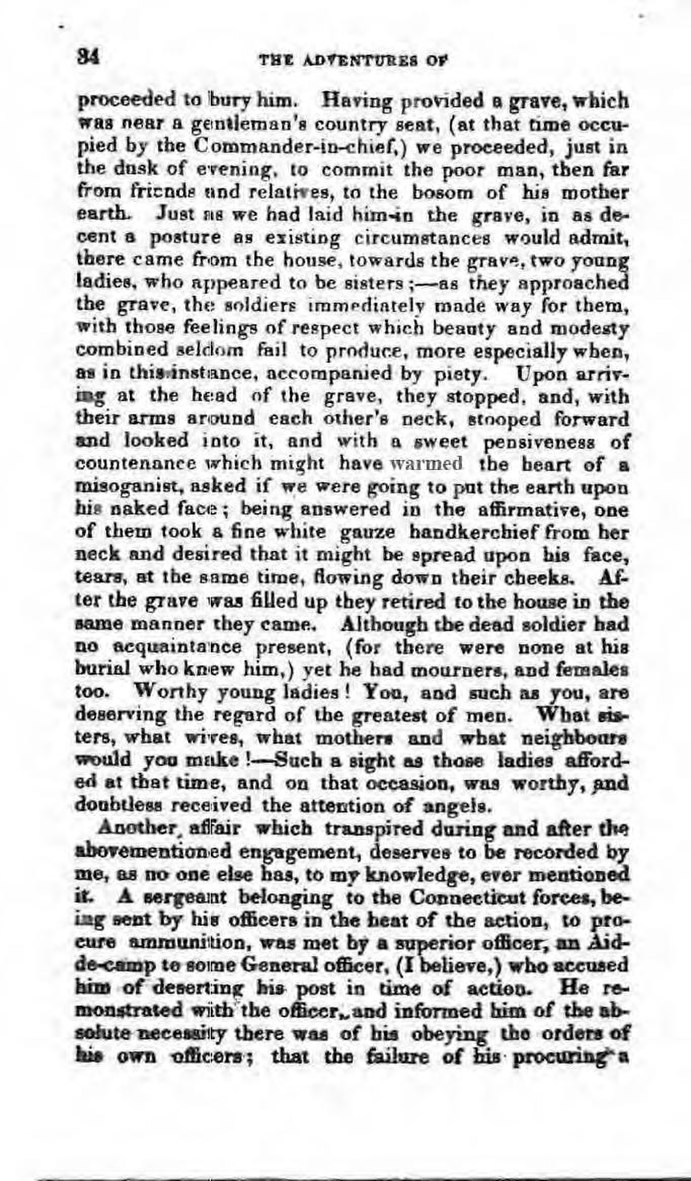proceeded to bury him. Having provided a grave, which was near a gentleman's country seat, (at that time occupied by the Commander-in-chief,) we proceeded, just in the dusk of evening, to commit the poor man, then far from friends and relatives, to the bosom of his mother earth. Just as we had laid him in the grave, in as decent a posture as existing circumstances would admit, there came from the house, towards the grave, two young ladies, who appeared to be sisters;—as they approached the grave, the soldiers immediately made way for them, with those feelings of respect which beauty and modesty combined seldom fail to produce, more especially when, as in this instance, accompanied by piety. Upon arriving at the head of the grave, they stopped, and, with their arms around each other's neck, stooped forward and looked into it, and with a sweet pensiveness of countenance which might have warmed the heart of a misoganist, asked if we were going to put the earth upon his naked face; being answered in the affirmative, one of them took a fine white gauze handkerchief from her neck and desired that it might be spread upon his face, tears, at the same time, flowing down their cheeks. After the grave was filled up they retired to the house in the same manner they came. Although the dead soldier had no acquaintance present, (for there were none at his burial who knew him,) yet he had mourners, and females too. Worthy young ladies! You, and such as you, are deserving the regard of the greatest of men. What sisters, what wives, what mothers and what neighbours would you make!—Such a sight as those ladies afforded at that time, and on that occasion, was worthy, and doubtless received the attention of angels.
Another affair which transpired during and after the abovementioned engagement, deserves to be recorded by me, as no one else has, to my knowledge, ever mentioned it. A sergeant belonging to the Connecticut forces, being sent by his officers in the heat of the action, to procure ammunition, was met by a superior officer, an Aid-de-camp to some General officer, (I believe,) who accused him of deserting his post in time of action. He remonstrated with the officer, and informed him of the absolute necessity there was of his obeying the orders of his own officers; that the failure of his procuring a
